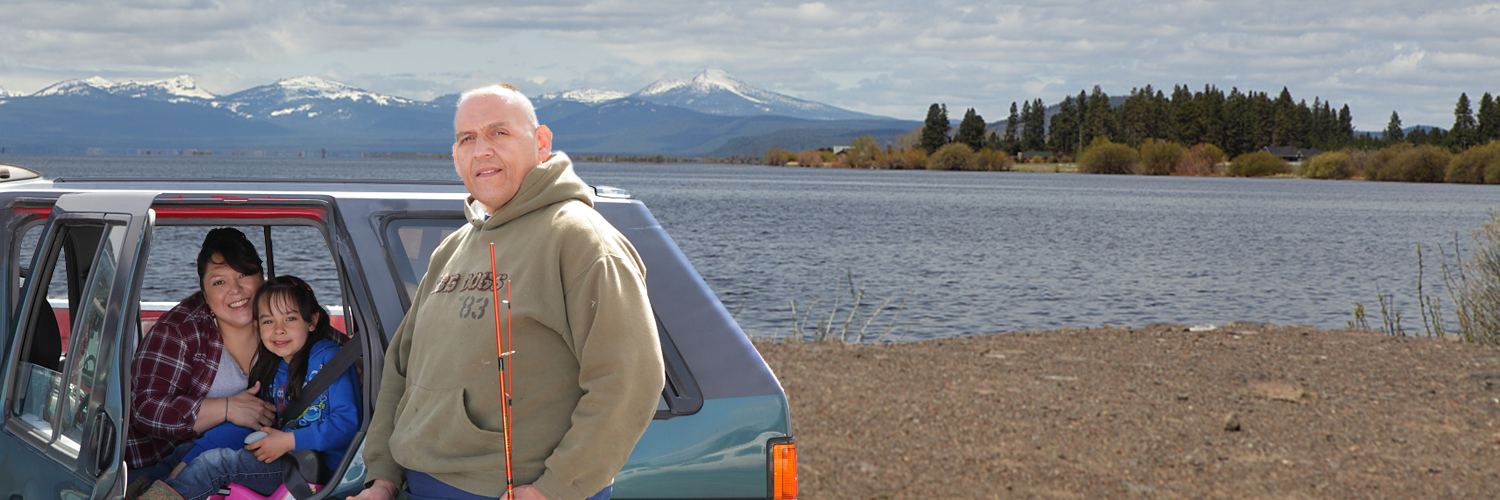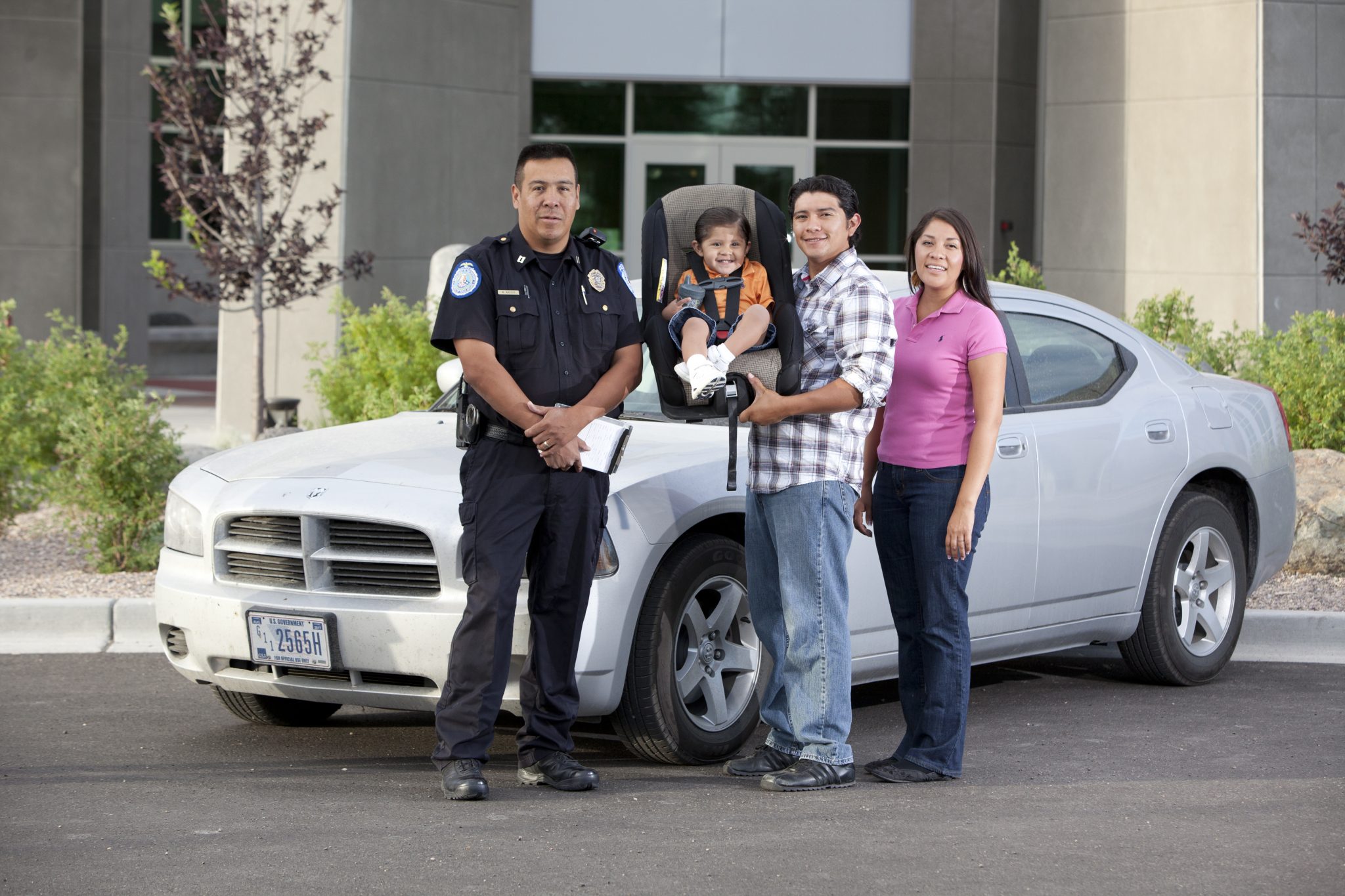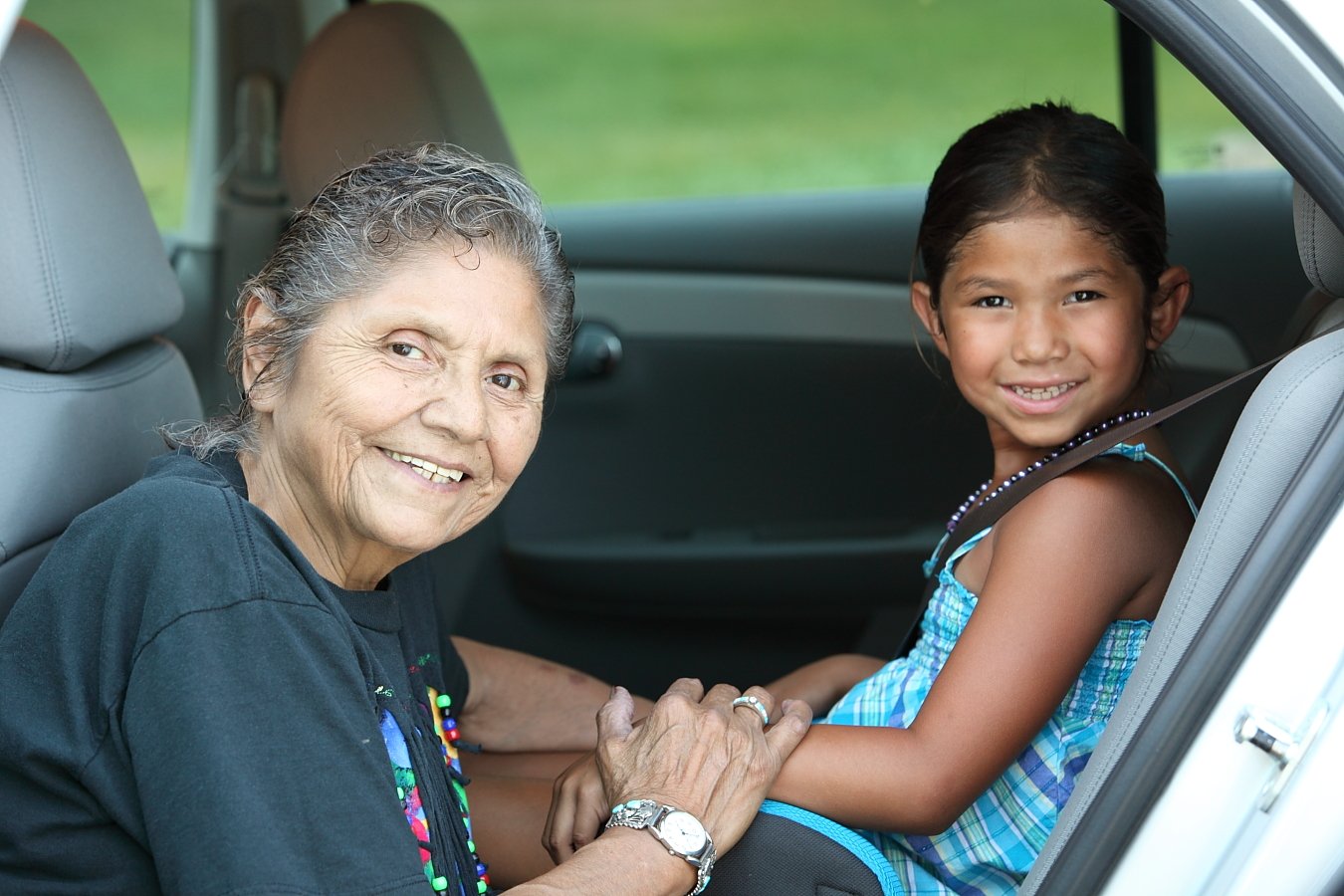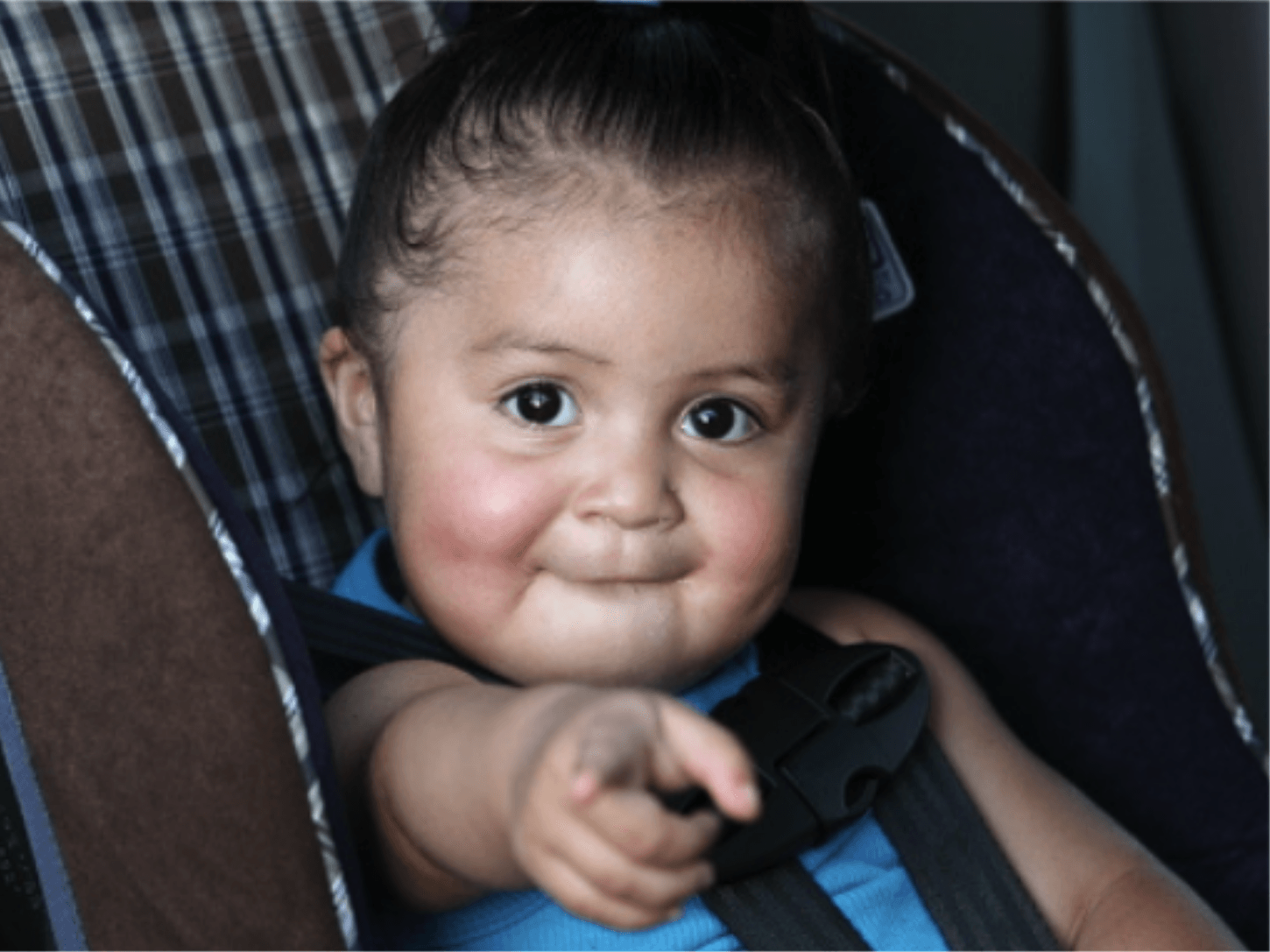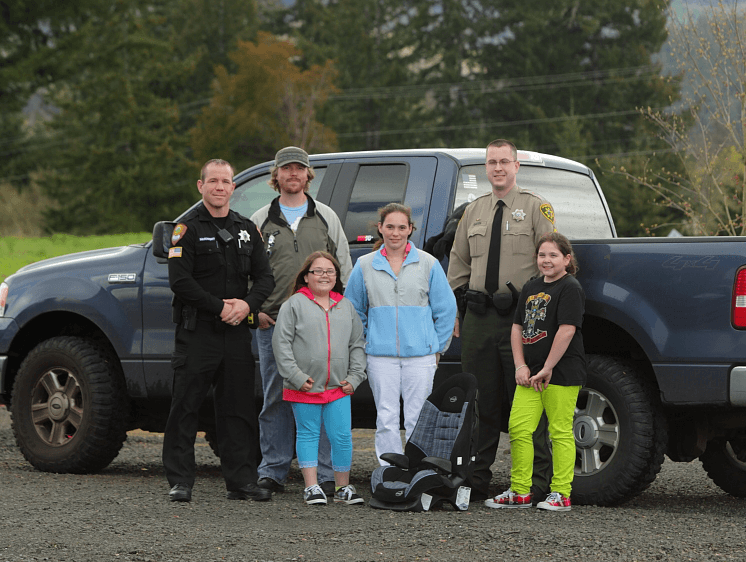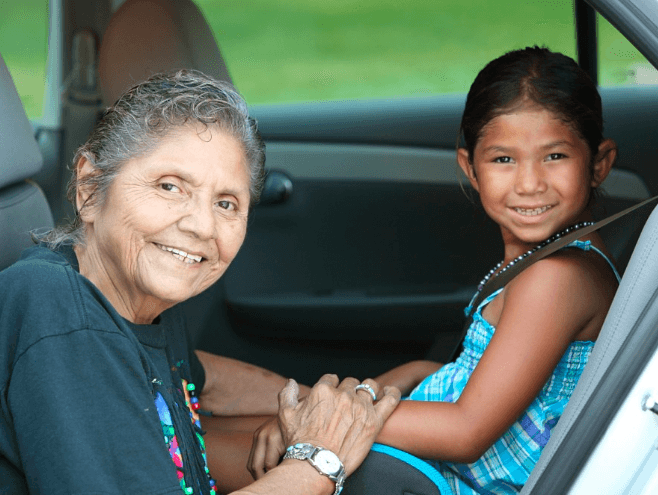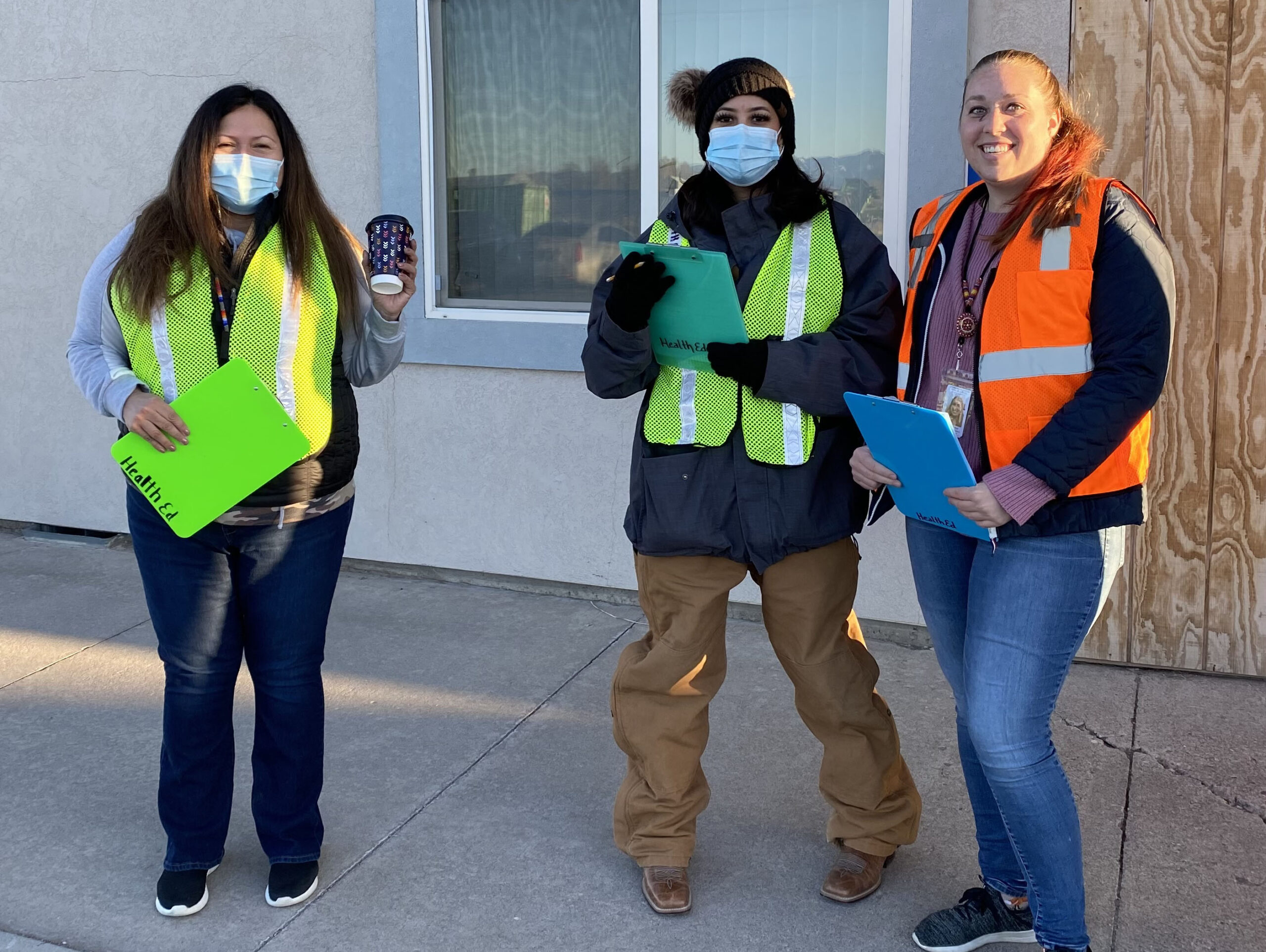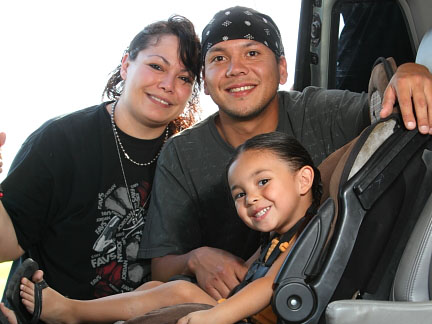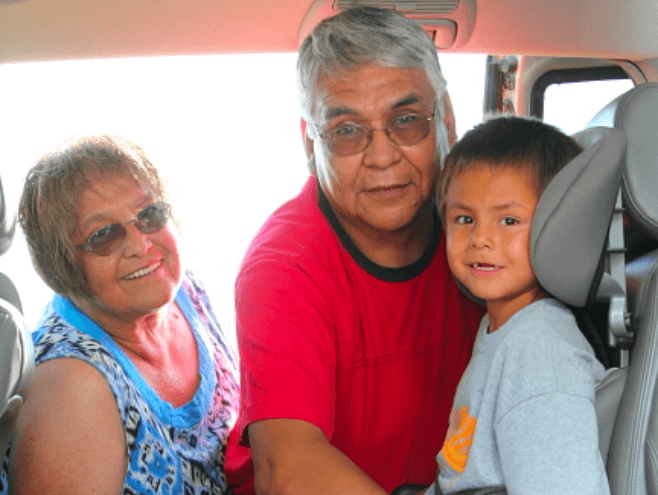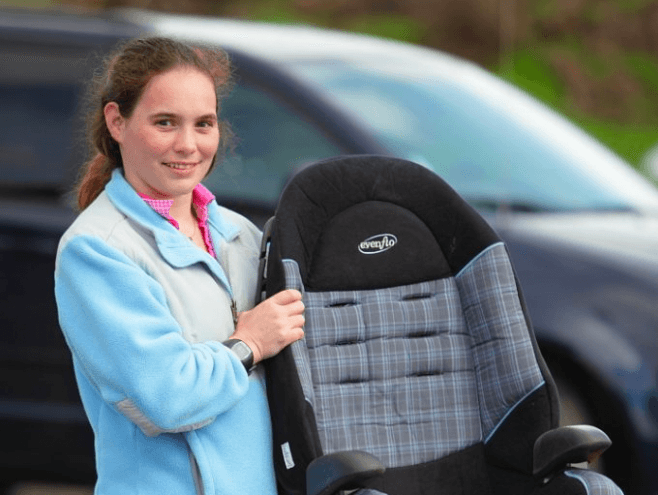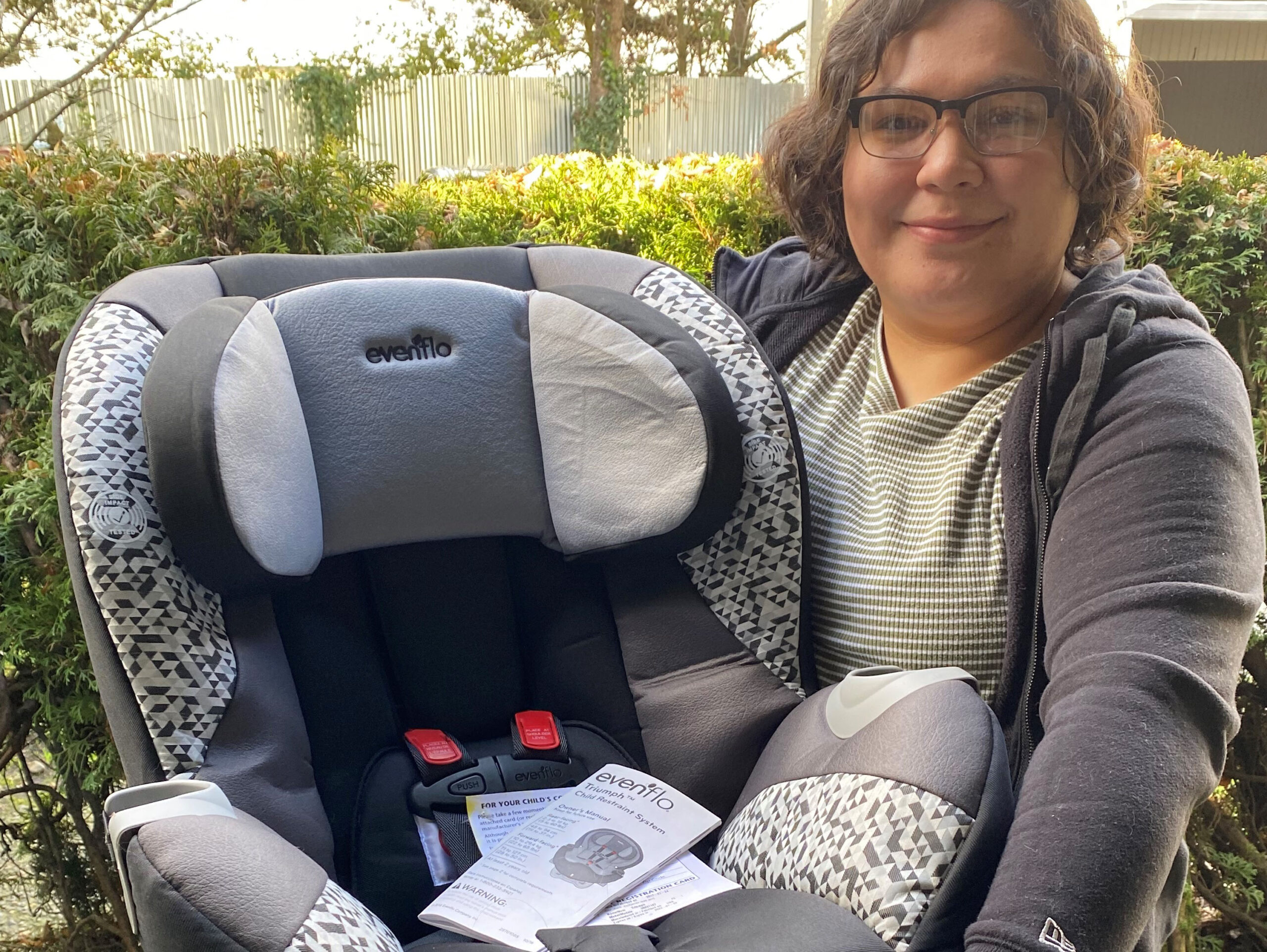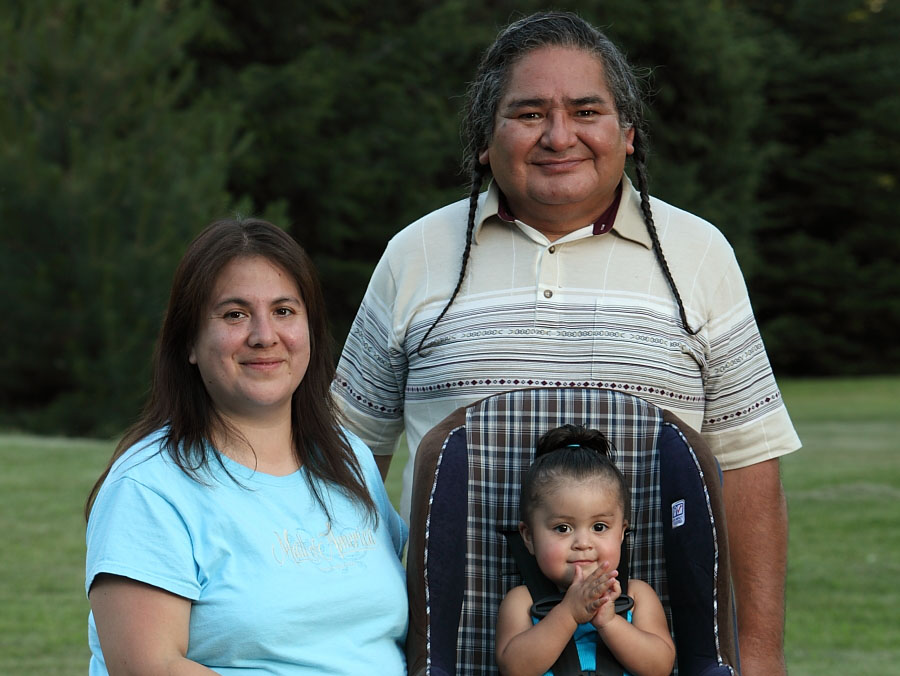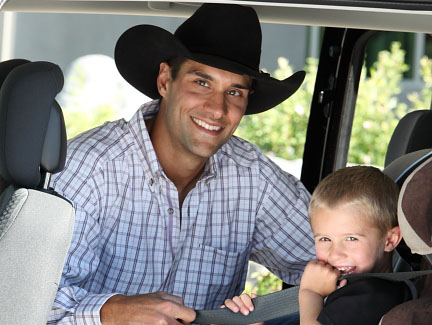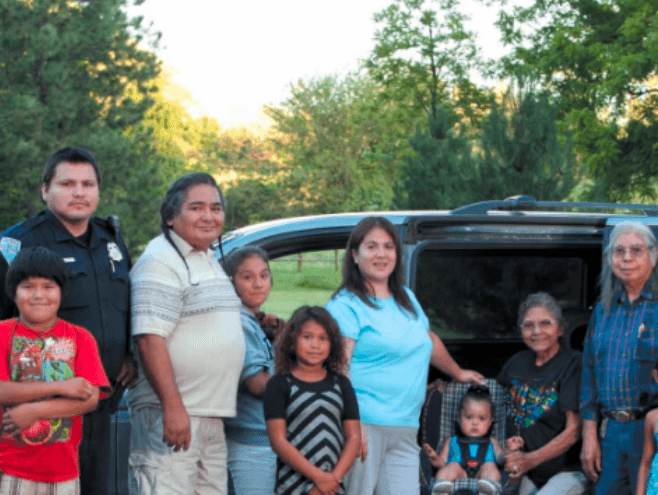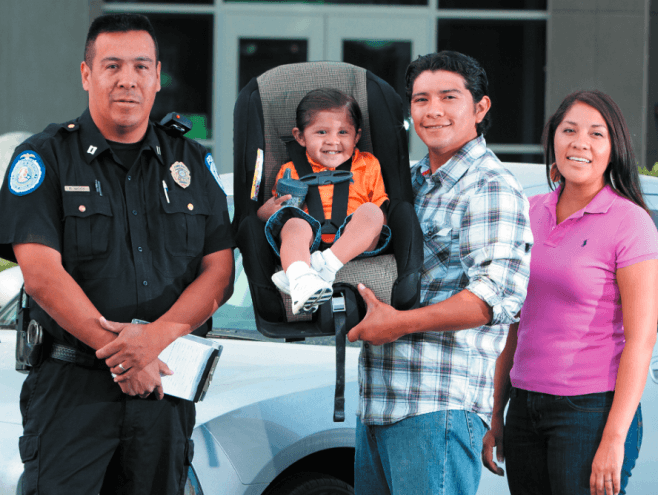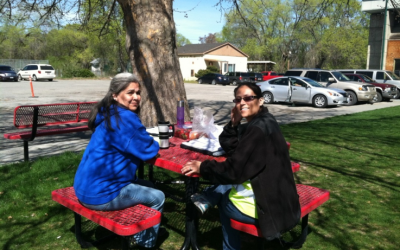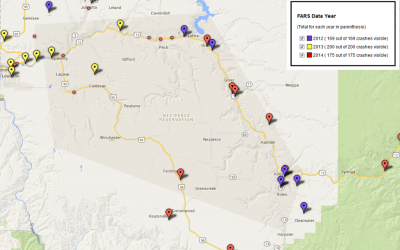About Native CARS and the Atlas
Native CARS stands for Native Children Always Ride Safe, which may be the aspiration for any family, community, or tribe. The Native CARS Study is a community-led research study that developed and tested community-specific interventions to improve child passenger restraint use. In 2009 we found that Native American children were 4.5 times more likely to be riding unrestrained in vehicles. The six tribes that implemented the study found a significant 50% increase in car seat use.
Because of this success, additional funding was awarded to share what made the Native CARS Study work. The six original Native CARS tribes, along with staff at the Northwest Portland Area Indian Health Board, created the Atlas to share the approaches that increased car seat use and ultimately saved children’s lives. The Native CARS Atlas was created by tribes, for tribes, and we hope you find something here to help you in your quest for zero child motor vehicle deaths in your community.
The Native CARS approach can be used by anyone, including:
- Schools
- Parent groups
- Caregivers
- Health care providers
- Public health programs
- Legal and law enforcement programs
How did we do it?
- Inside the Native CARS Atlas, you will find everything we know about improving child passenger safety, along with tons of interactive tools that you can use to create change within your own tribe. Our mission is to make sure Native Children Always Ride Safe.
Native CARS is funded by the National Institute on Minority Health and Health Disparities and is administered by the Northwest Portland Area Indian Health Board.
The most recent project endeavors are sponsored by the Indian Health Service’s Tribal Injury Prevention Cooperative Agreement Program.
Native CARS Learning Modules
What Can You Learn?
The Native CARS Atlas shares the child passenger safety successes the Native CARS study had with six Northwest Tribes. The Atlas includes materials tribes developed and used to increase community child safety seat use, like downloadable media materials, data collection protocols, suggestions for community engagement, step-by-step plans for building your awareness campaign, strategies for measuring car seat use, and methods for evaluating outcomes in your community.
Results for Your Community
The original Native CARS Tribes who used these tools saw a huge change within their communities. Proper child passenger restraint use increased by an average of 50% in the first three Tribes that implemented interventions between 2009 and 2011. Comparison tribes saw only an average 12% increase (p=0.005).No only did the number of children properly restrained increase, we also saw an increase in community engagement and cooperation. Different sectors and organizations came together to create effective solutions. We also saw success in the expertise that individuals in the community gained.These experts will carry on the good work long after NativeCARS is gone.
Successful Teamwork in Colville
Our tribe found motor vehicle fatalities to be devastating and unacceptable, because they are largely preventable. We took action. Here, we share the steps we took to improve car seat use in our community.
Big Improvements on the Nez Perce Reservation
The loss of life from motor vehicle crashes is devastating, because it claims the life of young people and shatters entire families and communities. In the state of Idaho, which is home to the Nez Perce Tribe, an unbelted passenger is killed every five days.
Project Partners
I routinely tell myself that if I make a difference in how one parent safely transports their child, then I’ve succeeded. You deserve a pat on the back and a hug from this kid when he’s older for this one.
— County Fire Fighter and EMT to Native CARS community project leader and certified child passenger seat technician after the EMT responded to a car crash that could have been fatal and was not. The child’s mother reported that the Native CARS project leader had helped her get and install the car seat correctly.
Recent Projects & Activities
The NPAIHB was awarded the 2021-2025 Cycle of the Tribal Injury Prevention Cooperative Agreement Program (TIPCAP), which is part of the Indian Health Service Injury Prevention Program. The NPAIHB has been a grantee for two previous cycles, where focuses were centered on elder falls. Now, for the NPAIHB’s third awarded TIPCAP cycle, our injury focuses are child passenger safety and pedestrian safety.
In Module 4, you can find the most recent observational data collection demonstration videos. These videos provide an example of how to conduct child passenger safety seat use observations in your community. The newest versions of the observational data collection forms and the data entry forms will also be found in Module 4. Please reach out to the Native CARS TIPCAP Project Coordinator; Olivia at owhiting@npaihb.org, with any and all questions about the data collection new forms, collecting data at your community, or anything related to Native CARS and TIPCAP. Do not hesitate to reach out, the Native CARS Team is always happy to connect and work with YOU!
Join Our Email List
Stay up to date with everything Native CARS TIPCAP, click HERE to sign up to join our email list! You will receive our project newsletters, various funding opportunities, and more CPS and pedestrian safety related content
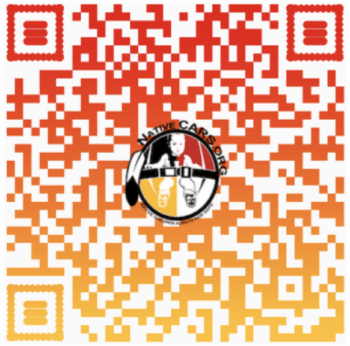
Stay Connected With Native CARS TIPCAP
You’ll receive:
- Quarterly Newsletters
- Quarterly Coalition Meeting Invitations
- Various Funding and Partnership Opportunities
- Overall Native CARS TIPCAP
Follow the QR Code OR Click here to sign up!


